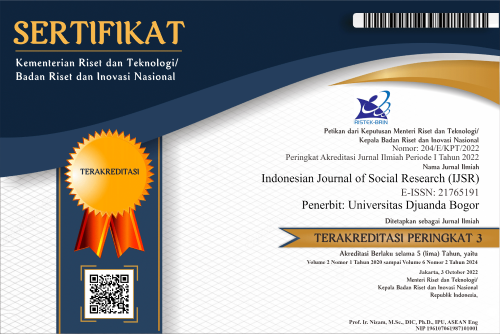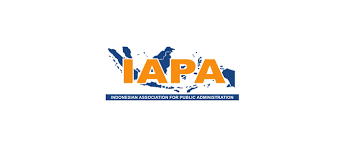Activities Of MGMP IPA Activities to Increase the Teacher Competence in Bogor District
Abstract
MGMP is a community of teachers to always learn (long life learning). Rapid development of the times requires the teacher to participate in the pursuit of knowledge. Lifelong learning is the teacher's obligation to generate knowledge. This is necessary because the teacher is a facilitator of students to gain knowledge. In line with that, teachers are expected to master every change process so students can also face global challenges. These results indicate that the majority of teachers who come to MGMP IPA Bogor District civil servants Teachers. MGMP activities are a place that facilitates teachers' mutual learning together. MGMP members consist of various teachers from different schools. The results show the MGMP majority forum of senior teachers. Senior Teachers are expected to guide junior and mediator teachers to learn from one another. The results of the study concluded that continuing professional development needs to be developed, then content, then creativity, ICT and finally SK and KD to improve teacher competence. The activity steps are arranged to help activate and optimize activities, namely by self-development, scientific publications, and scientific work in the Bogor District MGMP.
References
Abdullah, S. (2019). Sambutan P4TK IPA. Diakses pada hari senin, 25 Maret 2019 dari p4tkipa.kemdikbud.go.id
Bautista, A., & Ruiz, R.O. (2015). Teacher Professional Development: International Perspectives and Approaches. Journal Psychology, Society, & Education, 7(3): 240-251.
Buckory. (2016). Pengembangan Profesi Guru di Indonesia. Diakses pada hari senin, 25 Maret 2019 dari www.krjogja.com.
Ditjen GTK. (2010). Rambu-Rambu Pengembangan Kegiatan KKG Dan MGMP. Jakarta: Kementerian Pendidikan Nasional.
Ditjen GTK. (2018). Pedoman Umum: Program Pengembangan Keprofesian Berkelanjutan melalui Pendidikan dan Pelatihan Guru. Jakarta: Kementrian Pendidikan dan Kebudayaan
EAS. (2018). 3 Kriteria Guru Profesional untuk Pembelajaran Abad 21. Diakses pada hari senin, 25 Maret 2019 dari www.beritasatu.com.
Higgins, K. (2016). An Investigation of Professional Learning Communities in North Carolina School Systems. Journal of Research Initiatives 2(1): 1-21.
Hudson, Q. (2015). The Effectiveness of Professional Learning Communities as Perceived by Elementary School Teachers. Dissertation. Doctoral Study Submitted in Partial Fulfillment of the Requirements for the Degree of Doctor of Education. Minneapolis: Walden University
Niemi, H (2015). Teacher Professional Development in Finland: Towards a More Holistic Approach. Journal Psychology, Society, & Education 2015, 7(3): 279-294.
Susanti, A. & Sa’ud. U.D. (2016). Efektifitas Pengelolaan Pengembangan Profesionalitas Guru. Jurnal Administrasi Pendidikan 23 (2): 37-51
Suyatno., Sumerli, P. & Riadi, A.S. (2009). PENGEMBANGAN PROFESIONALISME GURU. Jakarta: Uhamka Press.
Widodo, A., Riandi & Hana', M. N. (2009). Alternatif model peningkatan profesionalisme guru: Dual mode pelatihan konvensional dan pelatihan via internet. Proceedings of the third International Seminar on Science Education, Bandung, 17 October 2009.
Wijaya, A. & Sumarna. (2017). Evaluasi Dampak Pendidikan Dan Pelatihan Pengembangan Keprofesian Berkelanjutan Guru Matematika Di Pppptk Matematika Yogyakarta. Jurnal Penelitian dan Evaluasi Pendidikan Volume 21 (2): 127-141.
Vescio, V., Ross, D.& Adams, A. (2008). A review of research on the impact of professional learning communities on teaching practice and student learning. Journal Teaching and Teacher Education 24: 80–91.
Copyright (c) 2020 Indonesian Journal of Social Research (IJSR)

This work is licensed under a Creative Commons Attribution-ShareAlike 4.0 International License.
The Authors submitting a manuscript do so on the understanding that if accepted for publication, copyright publishing of the article shall be assigned/transferred to Indonesian Journal of Social Research (IJSR) Universitas Djuanda as Publisher of the journal. Upon acceptance of an article, authors will be asked to complete a 'Copyright Transfer Agreement'. An e-mail will be sent to the corresponding author confirming receipt of the manuscript together with a 'Copyright Transfer Agreement' form by online version of this agreement.
Indonesian Journal of Social Research (IJSR) Universitas Djuanda, the Editors and the Editorial Board make every effort to ensure that no wrong or misleading data, opinions or statements be published in the journal. In any way, the contents of the articles and advertisements published in the Indonesian Journal of Social Research (IJSR) Universitas Djuanda are sole and exclusive responsibility of their respective authors and advertisers.
Remember, even though we ask for a transfer of copyright, our journal authors retain (or are granted back) significant scholarly rights as mention before.
The Copyright Transfer Agreement (CTA) Form can be downloaded here: Copyright Transfer Agreement-IJSR 2020
The copyright form should be signed electronically and send to the Editorial Office e-mail below:
Dr. Rasmitadila, M.Pd (Editor-in-Chief)
Universitas Djuanda
Jl. Tol Jagorawi No.1, Ciawi, Kec. Ciawi, Bogor, Jawa Barat 16720
Website: http://journal.unida.ac.id/index.php/IJSR/index
Email: ijsr@unida.ac.id





4.png)



